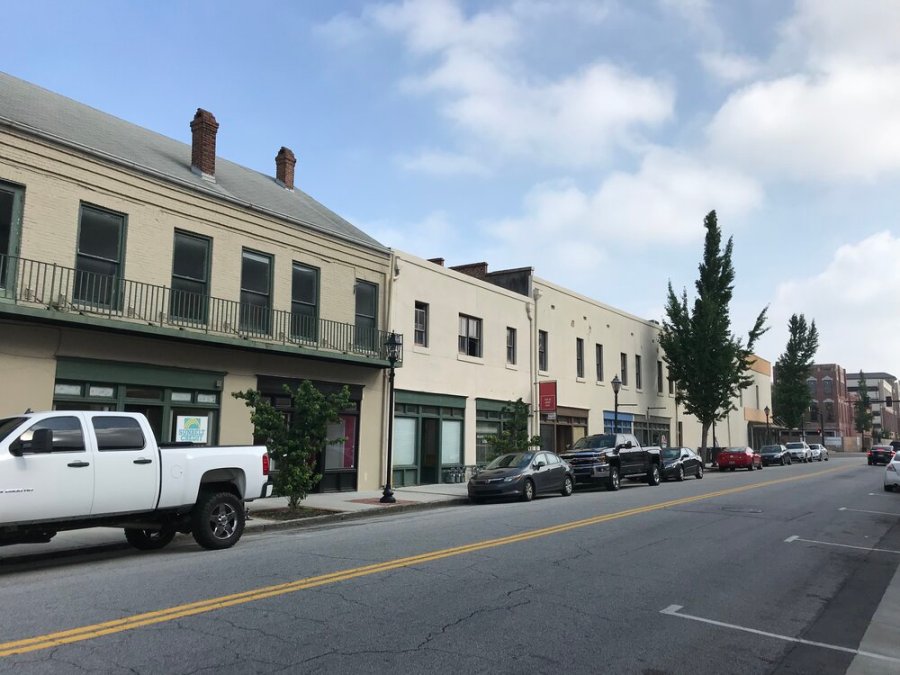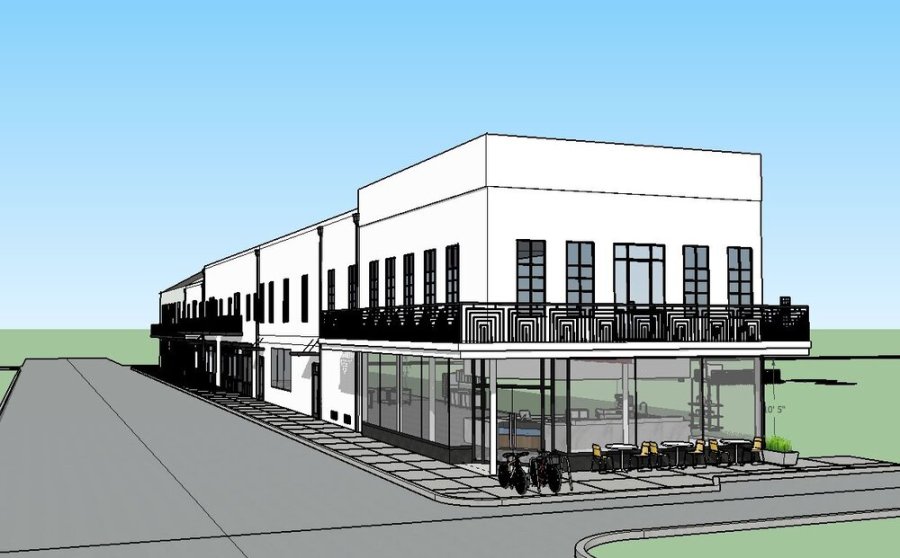
It’s an old but familiar story: local Main Street community thrives, then through some misguided mid-century urban planning comes car-centric sprawl, then festering vacancies, with once-loved buildings neglected with decades of decline.
But, an even better story? Someone’s vision to see through the rotted wood and boarded-up windows and their massive potential to regrow abandoned communities.
That someone, not technically developers, would be three people behind the retrofit of 902 Broad Street in downtown Augusta. Shawn Moseley, interviewed for this article, works in the music and brand space, his wife, Emilie, is a commercial interior designer, and his mother-in-law is a dentist. As Shawn says, “We aren’t developers, though these days it certainly feels that way.”
Originally from Charlotte, the couple formed Electric Park Holdings named after a long-gone recreational space near their property originally built for mill workers living in North Charlotte. The goal with the property at the time was to build Emilie’s company an office. But, once they relocated from Charlotte to Augusta to be closer to Emilie’s family, they discovered the property at 902 Broad Street and purchased it, selling the Charlotte parcel in Q3 of 2020.
Game on
Now the real work could start but first, some digging into its past. The Augusta parcel, at 30’ wide and a block-long, has a rich and varied history. During researching, Shawn discovered old advertisements in the Augusta Chronicle. “The anchor space at 9th & Broad has mostly been occupied by drug stores like Revco, White Cross, Walgreens, and Rexall, and for a good portion of its life it was a clothing store for the last 35 years,” he says. “The oldest record I found was an ad for J.O. Mathewson Seed & Feed in 1888. Our smaller retail units have seen such varied use; our office was once the location of a local fishmonger.”
Tax credits or no tax credits?
Though the building qualified for national historic tax credits they chose not to pursue them mostly because nearly all of the historic character of the building had been removed by previous owners, so establishing an ‘era’ was going to be a big challenge. “The pursuit of tax credits is time-consuming and we didn’t want to leave the design intent up to an arbitrary photograph.” Augusta’s Historic Preservation Commission experience was a bit frustrating as well since their input is on every built project in the downtown Augusta area. “Rightly so,” says Shawn, “but the approval process is framed around historic tax credit criteria. They weren’t prepared for an owner that wasn’t interested in the tax credits.”

Challenges of a retrofit
If you’ve ever been involved in a historic retrofit, adaptive reuse project, or any sort of building remodeling job and didn’t have a challenge, book a flight to Vegas, you’re lucky. For the trio, of course, there’s COVID. To pivot, they added NBPI units to their HVAC systems and—just in case—decided to include a walk-up window to the café. Without a doubt, says Shawn, the biggest challenge has been the pace of the project. “We’ve been working for more than a year to get this project designed and approved. The delays have been partly self-inflicted, partly driven by bureaucracy, and partly due to COVID,” he says.
Then there’s the neighbor with a vacant parcel with front and rear elevation the only thing left standing, and in such a state of overgrowth that the property now has “trees” growing from their wall into one of the buildings. “It’s causing damage to our building and we can’t repair until she engages, because our contractor won’t touch her property for fear or collapse or lawsuit or both,” says Shawn.
Things are moving regardless. As part of the retrofit, they’re upgrading each of the retail spaces with new HVAC, new lighting, new flooring, new ceilings, and constructing seven apartments on the currently vacant second floor. When completed they’ll have seven apartments upstairs and eight retail units along 9th street (aka James Brown Blvd.), along with a café/self-pour taproom (named after Emilie’s grandfather) in the anchor unit.
Shawn and Emilie feel the project—and their community—are truly beginning to evolve, too. “We’re seeing synapses of new life and creativity starting to fire all over town. Real people investing in real projects. Marry that energy to the we’re-still-here-never-gave-up stalwarts and we have a recipe for positive growth and change going into 2021,” adds Shawn.

